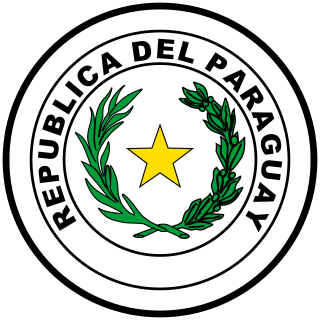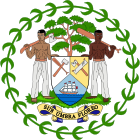The human rights situation in Cambodia is facing growing criticisms both within the country and from an increasingly alarmed international community. After a series of flagrant violations against basic human rights a feeling of incertitude regarding the direction the country is emerging, sometimes comparing the situation to a newborn Burma.

Since its turn towards democracy in 1990, Mongolia has in principle acknowledged the concept of human and civic rights. “Human rights law,” according to one human-rights organization, “is a rapidly expanding area in the Mongolian legal system.” In September 2000, Mongolia unilaterally adopted the so-called “Millennium Goal 9,” which is “to strengthen human rights and foster democratic governance.” Writing in 2012 in the Jakarta Post, the secretary-general of the Indonesian Community who “led the first demonstrations for democracy and reforms in Mongolia,” that “the passion for freedom and human rights” is “palpable in his being.” Addressing an audience at the Asia Society in New York in 2011, Elbegdorj Tsakhia said: “Freedom, human rights, justice, the rule of law, those values can be enjoyed, even by the poor people, even by poor herdsman in Mongolia.” The desire for human rights, he said, “is always there,” in all people. “Sometimes that desire can be crushed by tyranny. But it will rise again. That is Mongolia.”

Bolivia's constitution and laws technically guarantee a wide range of human rights, but in practice these rights very often fail to be respected and enforced. “The result of perpetual rights violations by the Bolivian government against its people,” according to the Foundation for Sustainable Development, “has fueled a palpable sense of desperation and anger throughout the country.”

In 2011, the then Algerian president Abdelaziz Bouteflika lifted a state of emergency that had been in place since the end of the Algerian Civil War in 2002, as a result of the Arab Spring protests that had occurred throughout the Arab world.

According to the U.S. Department of State's annual report on human rights in Mali for 2003, Mali's government generally respects the human rights of its citizens and observes relevant constitutional provisions and prohibitions.

Technically speaking, Paraguayan law prohibits discrimination on grounds of gender, race, language, disability, or social status, but there is nonetheless widespread discrimination.

Angola has long been severely criticized for its human rights record. A 2012 report by the U.S. Department of State said, "The three most important human rights abuses [in 2012] were official corruption and impunity; limits on the freedoms of assembly, association, speech, and press; and cruel and excessive punishment, including reported cases of torture and beatings as well as unlawful killings by police and other security personnel. Other human rights abuses included: harsh and potentially life-threatening prison conditions; arbitrary arrest and detention; lengthy pretrial detention; impunity for human rights abusers; lack of judicial process and judicial inefficiency; infringements on citizens' privacy rights and forced evictions without compensation; restrictions on nongovernmental organizations; discrimination and violence against women; abuse of children; trafficking in persons; discrimination against persons with disabilities, indigenous people, and persons with HIV/AIDS; limits on workers' rights; and forced labor." In 2022, Freedom House rated Angola "not free".

Human Rights in Andorra are guaranteed under the Andorran constitution. The State Department considers Andorra to have few human rights concerns.

Concerns about human rights in Chile include discrimination against indigenous populations; societal violence and discrimination against women, children, and lesbian, gay, bisexual, and transgender (LGBT) people; child labor; and harsh prison conditions and treatment. Additional human rights concerns in the country include use of excessive force and abuse by security forces, isolated reports of government corruption, and anti-Semitism. Authorities generally maintain effective control over the security forces. However, security forces occasionally commit human rights abuses. The government generally takes steps to prosecute officials who commit abuses. Nevertheless, many human rights organizations contend that security officials accused of committing abuses have impunity.

The human-rights situation in Benin is considered to be generally above average for sub-Saharan Africa.
Iceland is generally considered to be one of the leading countries in the world in regard to the human rights enjoyed by its citizens. Human rights are guaranteed by Sections VI and VII of Iceland's Constitution. Since 1989, a post of Ombudsman exists. Elections are free and fair, security forces report to civilian authorities, there is no state violence, and human rights groups are allowed to operate without restriction. Religious freedom is guaranteed, and discrimination based on sexual orientation is illegal.

Human rights in Zambia are addressed in Zambia's constitution. However, the Zambia 2012 Human Rights Report of the United States Department of State noted that in general, the government's human rights record remained poor. The 2021 version of this report noted improvements in many areas.

Eswatini, Africa's last remaining absolute monarchy, was rated by Freedom House from 1972 to 1992 as "Partly Free"; since 1993, it has been considered "Not Free". During these years the country's Freedom House rating for "Political Rights" has slipped from 4 to 7, and "Civil Liberties" from 2 to 5. Political parties have been banned in Eswatini since 1973. A 2011 Human Rights Watch report described the country as being "in the midst of a serious crisis of governance", noting that "[y]ears of extravagant expenditure by the royal family, fiscal indiscipline, and government corruption have left the country on the brink of economic disaster". In 2012, the African Commission on Human and Peoples' Rights (ACHPR) issued a sharp criticism of Eswatini's human-rights record, calling on the Swazi government to honor its commitments under international law in regards to freedom of expression, association, and assembly. HRW notes that owing to a 40% unemployment rate and low wages that oblige 80% of Swazis to live on less than US$2 a day, the government has been under "increasing pressure from civil society activists and trade unionists to implement economic reforms and open up the space for civil and political activism" and that dozens of arrests have taken place "during protests against the government's poor governance and human rights record".

According to international observers, human rights in Belgium are generally respected and the law and the judiciary provides effective means of addressing individual instances of abuse. However, some concerns have been reported by international human rights officials over the treatment of asylum seekers, prison overcrowding and the banning of full face veils. Capital punishment is fully abolished and a prohibition on the death penalty is included in the Constitution of Belgium. Belgium was a founding member of the European Union and the Council of Europe and a signatory to the European Convention on Human Rights. Belgium has minimal issues regarding corruption and was ranked 15 out of 167 countries surveyed in Transparency International's 2015 Corruption Perceptions Index.

Human rights in Liberia became a focus of international attention when the country's president, Ellen Johnson Sirleaf, was named one of the three female co-winners of the 2011 Nobel Peace Prize, all of whom were cited "for their non-violent struggle for the safety of women and for women's rights to full participation in peace-building work".

Togo in West Africa is currently rated as "Partly Free" by Freedom House.
The issue of human rights in Tanzania, a nation with a 2012 population of 44,928,923, is complex. In its 2013 Freedom in the World report, Freedom House declared the country "Partly Free".

Human rights in Sierra Leone are in a rather deplorable state, but have improved gradually since the end of its civil war in 2002. Among the major human-rights problems in Sierra Leone today, according to a 2011 U.S. State Department report, are "security force abuse and use of excessive force with detainees, including juveniles; harsh conditions in prisons and jails; official impunity; arbitrary arrest and detention; prolonged detention, excessive bail, and insufficient legal representation; interference with freedom of speech and press; forcible dispersion of demonstrators; widespread official corruption; societal discrimination and violence against women, discrimination based on sexual orientation; female genital mutilation (FGM); child abuse; trafficking in persons, including children; and forced child labor".
Human rights in Slovakia are governed by the laws of Slovakia and overseen by international organizations such as the Council of Europe.

Human rights in the Czech Republic are generally regarded as adequate, with some lingering issues. In recent years, the Czech Republic has made significant strides in upholding and protecting the human rights of individuals. As a member state of international organizations such as the United Nations (UN) and the European Union (EU), it is a signatory to several treaties that require the state to guarantee human rights. Despite this, there are still lingering human rights issues, which include violence against women and discrimination against vulnerable groups such as the Roma people and members of the LGBTQI community.
















